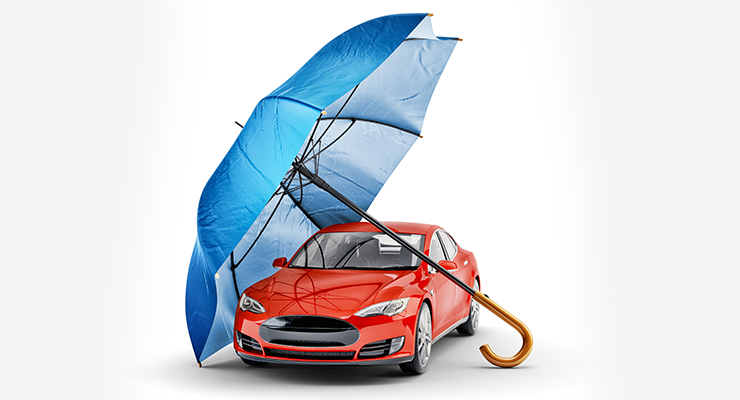Does Auto Insurance Cover Damage Caused by Natural Disasters?
In this article, we will explore the topic of auto insurance coverage for natural disasters and help you understand the key aspects you need to know. So, let's dive in!

Auto insurance is a crucial aspect of vehicle ownership, providing financial protection in the event of accidents, theft, and various other incidents. However, when it comes to natural disasters, many vehicle owners wonder if their auto insurance policy covers the damage caused.
Before we delve into the specifics of natural disaster coverage, it's essential to establish a clear understanding of auto insurance. Auto insurance is a contractual agreement between a vehicle owner and an insurance company, providing financial protection against various risks associated with owning and operating a vehicle. It typically includes coverage for accidents, collisions, theft, and vandalism.
What is Covered by Auto Insurance?
Auto insurance policies offer different types of coverage, depending on the policyholder's needs and the level of protection desired. The most common types of coverage include liability coverage, collision coverage, comprehensive coverage, and uninsured/underinsured motorist coverage.
Liability coverage protects you financially if you cause an accident that results in property damage or injury to others. Collision coverage pays for repairs to your own vehicle in the event of an accident, regardless of fault. Comprehensive coverage, which we'll focus on in this article, covers damages to your vehicle caused by factors other than accidents, such as natural disasters, theft, or vandalism. Uninsured/underinsured motorist coverage provides coverage if you're involved in an accident with a driver who doesn't have insurance or lacks sufficient coverage.
Understanding Natural Disasters
Natural disasters are unpredictable events that can cause significant damage to vehicles and property. They can include hurricanes, tornadoes, floods, earthquakes, wildfires, and more. These disasters often lead to severe vehicular damage, leaving vehicle owners grappling with repair costs and financial burden.
Does Auto Insurance Cover Damage Caused by Natural Disasters?
The answer to whether auto insurance covers damage caused by natural disasters lies in the comprehensive coverage of your policy. Comprehensive coverage, sometimes referred to as "other than collision" coverage, is designed to protect you from non-accident-related damages. It typically covers damages caused by natural disasters, including those mentioned earlier.
However, it's important to note that direct auto insurance policies can vary, and the extent of coverage for natural disasters may differ between providers and policies. Some insurance companies may offer comprehensive coverage as a standard part of their policies, while others may require it to be added as an optional coverage. Therefore, it is essential to review your policy documents and understand the specifics of your coverage.
How to Check if Your Auto Insurance Covers Natural Disasters?
To determine if your auto insurance covers damage caused by natural disasters, there are a few steps you can take:
Firstly, review your policy documents thoroughly. The policy should clearly outline the coverage provided for natural disasters under the comprehensive section. Look for keywords such as "acts of God," "fire and theft," or "comprehensive coverage" to identify the specific language used to describe natural disaster coverage.
If you're unsure or have difficulty understanding the policy language, it's always best to contact your insurance provider directly. Their customer service representatives can provide you with the necessary information and clarify any doubts you may have regarding your coverage. Be prepared to provide your policy number and details about your vehicle when contacting them for a more accurate response.
Additional Coverage Options
In some cases, standard comprehensive coverage may not fully protect you against certain natural disasters, especially if you live in a high-risk area. However, auto insurance quote companies often offer additional coverage options that cater to specific natural disasters.
For example, if you live in an area prone to hurricanes or floods, you might consider adding a rider to your policy that specifically covers damages caused by these events. These riders may come with additional premiums, but they can provide much-needed peace of mind knowing that you're adequately protected against the risks associated with your geographical location.
Moreover, insurance providers may offer enhanced coverage for high-risk areas. If you reside in an area prone to wildfires or earthquakes, inquire about the availability of specialized coverage that takes into account the unique risks associated with these natural disasters.
What to Do if Your Vehicle is Damaged by a Natural Disaster?
If your vehicle sustains damage due to a natural disaster, it's crucial to take the following steps:
- Contact your insurance provider as soon as possible to report the incident and initiate the claims process. Promptly notifying them will help expedite the evaluation and repair procedures.
- Document the damage by taking photographs or videos of the affected areas. This visual evidence will support your claim and provide a clear record of the extent of the damage.
- Follow your car insurance quotes provider's instructions on filing a claim. Provide them with all the necessary information, including the date and location of the incident, and any supporting documentation or evidence you have gathered.
While auto insurance policies generally include coverage for damages caused by natural disasters under comprehensive coverage, it's essential to review your policy documents and verify the specifics with your insurance provider. Taking the time to understand your coverage and any additional options available can help ensure you have the necessary protection in place to safeguard your vehicle against the unpredictable forces of nature.
In conclusion, auto insurance can provide valuable financial protection for vehicle owners, extending coverage to include damages caused by natural disasters. By staying informed, reviewing your policy, and exploring additional coverage options when necessary, you can enjoy greater peace of mind knowing that your vehicle is adequately protected.
Auto insurance plays a critical role in protecting vehicle owners from various risks and unforeseen events. While accidents, collisions, theft, and vandalism are common concerns covered by auto insurance, many individuals wonder if their policy also extends to damages caused by natural disasters. In this article, we will explore the topic of auto insurance coverage for natural disasters and provide insights to help you understand how to navigate this aspect of your policy.
Natural disasters are unpredictable and can wreak havoc on vehicles, resulting in substantial financial losses for owners. From hurricanes and tornadoes to floods, earthquakes, and wildfires, these events can cause extensive damage to vehicles and leave individuals burdened with repair costs. That's why it's crucial to have a clear understanding of whether your auto insurance covers such damages.
Comprehensive coverage is the key component of auto insurance that comes into play when it comes to natural disasters. It is also referred to as "other than collision" coverage and is designed to protect against damages caused by factors beyond accidents. Comprehensive coverage typically includes protection against natural disasters, theft, vandalism, falling objects, fire, and more. However, the specifics of comprehensive coverage can vary depending on your insurance provider and the terms of your policy.
To determine if your auto insurance covers damage caused by natural disasters, the first step is to carefully review your policy documents. Pay close attention to the section that discusses comprehensive coverage. Look for explicit language that mentions coverage for "acts of God," "fire and theft," or "natural disasters." These terms indicate that your policy does offer protection in case your vehicle is damaged by a natural disaster.
If you are unsure about the language used in your policy or find it difficult to interpret, it is always recommended to contact your insurance provider directly. Reach out to their customer service department and inquire about the specifics of your coverage. It's essential to provide them with your policy number and vehicle details to receive accurate information tailored to your situation.
In some instances, your standard comprehensive coverage may not provide complete protection against certain natural disasters, especially if you live in a high-risk area. However, insurance companies often offer additional coverage options to cater to specific natural disasters. For example, if you reside in a region prone to hurricanes or floods, you might consider adding a rider to your policy that specifically covers damages caused by these events. While these riders may come with an additional cost, they provide an extra layer of protection and peace of mind.
If your vehicle is damaged by a natural disaster, prompt action is essential. Contact your insurance provider as soon as possible to report the incident and initiate the claims process. By notifying them promptly, you can expedite the evaluation and repair procedures. Document the damage by taking photographs or videos of the affected areas. This visual evidence will support your claim and provide a clear record of the extent of the damage. Follow your insurance provider's instructions on filing a claim, ensuring you provide all the necessary information, such as the date and location of the incident, along with any supporting documentation or evidence you have gathered.
In conclusion, auto insurance coverage for damages caused by natural disasters is typically provided under the comprehensive section of your policy. However, it is crucial to review your policy documents and consult with your insurance provider to understand the specific terms and conditions of your coverage. By staying informed and exploring additional coverage options if needed, you can ensure your vehicle is adequately protected against the unpredictable forces of nature.
What's Your Reaction?




















